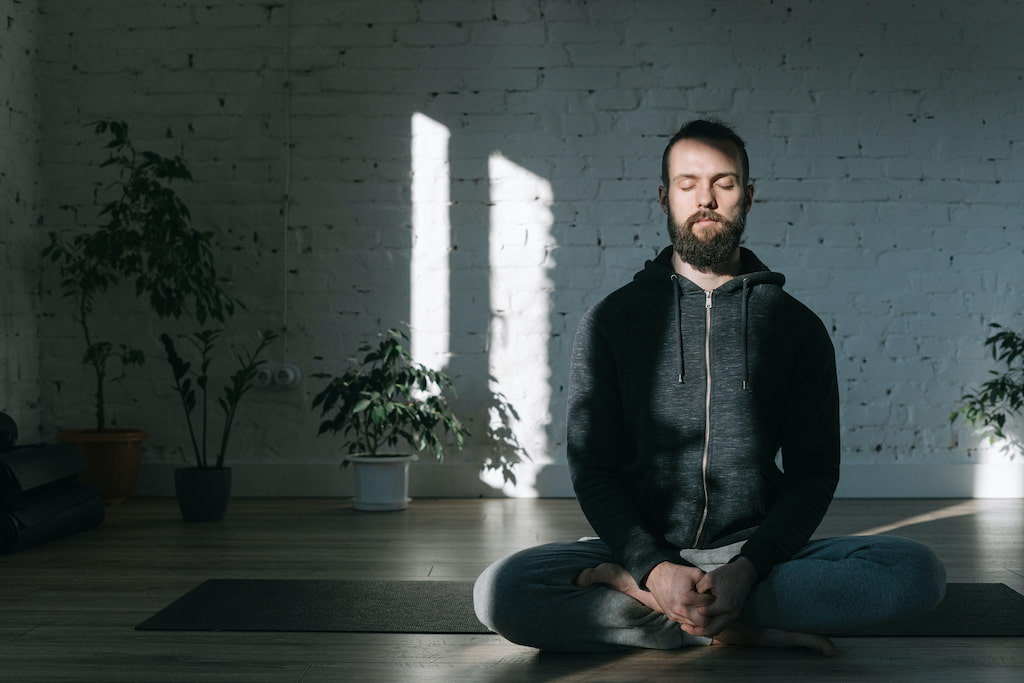Improving Our Relationship With Stress


Content
While stress is an inevitable part of our lives, it has transformed into a lifestyle for many of us during this time in which we are living. From intense work pace, financial concerns, anxiety both present and future, long to-do lists, and various expectations, stress can take root.
Let’s be clear, although we all have a certain amount of knowledge when it comes to stress, we may find it difficult to apply strategies for how to manage it in practice. It is not always easy to stay calm when we are stuck in traffic while trying to get to a highly critical meeting, when we come to a breaking point in our romantic relationships, or when we have debts to pay off.
The good news is that it’s up to us to change our relationship with stress. It is possible for us to accept stress as a natural part of life, to understand it instead of “fighting it off,” to discover the role of stress in our lives, and to continue walking our path as our truest selves.

Understanding Stress
Stress is our body’s natural reaction to external physical or psychological stimuli. Homeostasis, the state of balance or equilibrium within our body, can be disturbed when faced with stress. Our body makes internal changes in order to adapt to the external environment. The system that manages these changes is known as the sympathetic nervous system. During a moment of stress, the sympathetic nervous system takes over and the commonly known “fight or flight” mechanism comes into play. As a result, chain reactions occur in our body such as an increase in heart rate, sweating, dilation of the bronchi, rise in blood pressure, and muscle contractions. When the physical or psychological stressor disappears, our body activates the parasympathetic nervous system through the “relax, digest,” command transmitted from mind to body to return to homeostasis.
A rather recent finding about stress is the crucial role that the vagus nerve plays in the parasympathetic nervous system. The vagus nerve is our longest cranial nerve and sends parasympathetic nerves to our heart, lungs, stomach, small intestine, liver, pancreas, and many other organs. Unlike the chain reactions generated by the sympathetic nervous system during stress, the vagus nerve tries to regulate our breathing, heart rate, muscles, digestive system, circulation, and even our vocal cords to again return us to homeostasis.
This means that our body has an advanced mechanism that enables us to act in times of stress and to calm down afterward. However, this system is not exactly the same for each of us. None of us experiences stress the same way and we can react and respond differently to various stressors. For instance, some of us may experience stress tied to our breath and breathing, while others may find it manifests through the contraction of muscles. These variations can be shaped by other our genes and our lived experiences.
How do you experience stress? Which part of your body do you feel stress most intensely? How do you respond to stress? Answering these questions can be a good start to getting to know and understanding your relationship with stress.
Discover the Role of Stress in Your Life
Recall one accomplishment that means a great deal to you. Try to visualize all the details of that experience in your mind, remember how you felt, try to feel those sensations that awakened in your body in that moment. Now, remember the path you took to achieve that accomplishment. Was it an easy, smooth, and short path? Or, was it more challenging and filled with obstacles? Which emotions accompanied you on this path? Which emotions motivated you? Think about how stress served you in that process, how it contributed to what you achieved.
Could the fact that you are feeling stressed mean that you are actually improving, growing, trying something new, and exploring your limits? When we get stressed during a difficult task, we may instantly feel like something negative is happening. The task we are doing may seem impossible, difficult, boring, overwhelming, and exhausting. This can result in our motivation to decrease and sometimes we may give up. The uneasiness and stress of new things can be due to the body’s instinct to protect itself against a possible threat. Therefore, it is natural to feel stressed when faced with a challenging new task, new habits, or new responsibilities. When we are outside of our comfort zone, we can experience stress. This just means you are trying something new and trying to discover your potential and your limits. As Adam Braun said, “True self-discovery begins where your comfort zone ends.”
Stress is an important source of energy to unlock our potential. Studies have found that short-term stress enhances memory and improves mental performance. It has also been found that stress increases our emotional resilience, strengthens our social ties, and plays an important role in determining our priorities and purpose in life. Additionally, stress strengthens our immune system and even helps us combat disease.
Stress creates important contributions to both our development and performance. So, how might your experience of stress positively add to your life? Maybe you discovered a new perspective or achievement as a result of stress. Beginning to answer the question of how stress has positively impacted your life can help you better understand how stress manifests for you.

Managing Our Stress
Timber Hawkeye says, “You cannot calm the storm, so stop trying. What you can do is calm yourself. The storm will pass.” When our body and mind are in harmony, we feel ourselves safe and in the flow. Thus, no matter how strong the storm is outside, we can experience calm within our body’s limits. So, how do we achieve this harmony? The following suggestions may be helpful:
Meditation
Meditation is a great strategy that can be there for you wherever you want and whenever you need it. Moreover, it is one of the easiest resources you can access these days when we are spending more and more time in our homes. You can use meditation in three different ways to manage your stress:
- It can be part of your daily routine to support you in developing emotional resilience against stress.
- It can help you find your ground and balance once a stressful situation is over.
- It can help you reverse the stress response in your body in order to physically relax.
Through learning to calm your body and mind, you can mitigate the effects of stress. Thus, you will feel stronger and refreshed. It has been shown that those who meditate regularly feel less stressed when facing difficulties in their daily lives and react in healthier ways to stressful situations. Moreover, studies show that regular meditation reduces stress in just 8 weeks.

Smiling
First of all, I would like to tell you about my process of writing this article.
I have experienced various emotions while writing. My first feeling was a tremendous sense of happiness. The idea of being a member of the Meditopia family truly excited me and I immediately got to work. It was not that difficult to choose the topic as I thought it would be widely applicable, since each and every one of us experiences stress that directly affects the quality of our lives. So far, so good.
Let’s get to the writing phase. As I was trying to examine the topic, to employ the correct language, to find the most useful information for my article which I had started with great excitement, the only feeling I was experiencing while writing an article about stress was stress. After some thought, I found this ironic situation funny. I laughed to myself.
Would you believe me if I told you that after that smile break, my mind relaxed, then my hands loosened, which I had tightened without even noticing, and the words started to flow naturally?
But why do we relax when we smile?
When we smile, our mind receives the message, “Everything is fine, I’m safe.” This causes an increase in endorphins and serotonin, known as the happiness hormone, while reducing cortisol and adrenaline, known as stress hormones, in our body. As a result of all these natural changes in brain chemicals, we feel better and happier.
You might be wondering, “How can I laugh when I’m stressed?” In fact, we don’t have to feel good all the time to smile. Sometimes we can smile just to feel good. It is under our control to use these muscles. The good news is that our brains cannot differentiate between a real smile and a smile of pretend. While you are smiling, the signals that you feel happy, pleasant, and comfortable are sent from your body to your brain. The brain then assumes that this is true. If you want to try it right now, form a soft and natural smile on your face and wait for one minute. Observe how you feel.
Make lots of excuses to smile throughout the day. Reading a funny article, watching an entertaining movie, or spending time with your pet if you have one, can be perfect for this. For me, it’s been the humorous posts on social media that helped me reduce the stress and anxiety I’ve experienced during the pandemic.

Listening to Our Body
Our body reflects our thoughts and feelings. In other words, what we feel in our body carries important information about ourselves and our needs.
When we are stressed, we may contract many of our muscles without even noticing. In fact, the body does this as a reflex in anticipation of injuries and pain that may occur at the time of a threat. The small moments of stress that we experience in our daily routine affect our muscles as well, causing us to feel physical pain and discomfort over time.
Sometimes we feel these pains are negligible or that we can just keep it moving. However, listening to the messages our body gives us is important in terms of making sense of what we experience.
Well, what does your body tell you today?
The shortest way to communicate with our body is through our breathing. You can think of the breath as a bridge between you and your body. Every time you breathe, you connect with your body a little bit more, getting closer to yourself. For this experience, you can try the breathing exercise below.
You can let your focus wander around the parts of your body while taking deep breaths in and out. Observe your body with curiosity and compassion. Notice your breath as you scan your facial muscles, neck, shoulders, arms, hands, back, waist, chest, heart, abdomen, hips, legs and feet. Listen to your body’s messages.
It is possible to strengthen your relationship with your body by noticing your physical sensations and observing the changes you experience. The strength of this relationship gives you balance and stamina when dealing with challenging emotions such as stress.
Remember that we are all unique. Therefore, how we experience stress, how we respond to it, and what is good for us may also differ.
So what’s good for you? Will you share with us?
Translator: Ebru Peközer



